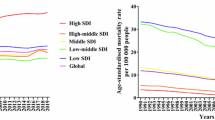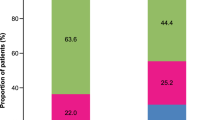Abstract
Objective:
To characterise the relationship between ICD code-based (i.e. physician diagnosis-based) and criteria-based asthma ascertainment.
Methods:
We compared identification of children with asthma between criteria-based medical record review for asthma ascertainment and an ICD-9 code-based approach. We determined the agreement rate and validity index of ICD code-based asthma ascertainment using asthma status by medical record review as a gold standard.
Results:
Of the 115 study subjects, the agreement between medical record review and ICD-9 coding was 81.6% with a kappa value of 0.28 (P<0.0001). Sensitivity, specificity, positive and negative predictive values for ICD-9 code were 24.0%, 97.8%, 75.0%, and 82.0%, respectively, using criteria for asthma by medical record review as gold standard.
Conclusions:
ICD code-based asthma ascertainment appears to under-identify children with asthma compared to criteria-based medical record review. ICD codes may be useful for etiologic research but may not be suitable for surveillance of asthma epidemiology.
Similar content being viewed by others
Article PDF
Author information
Authors and Affiliations
Corresponding author
Ethics declarations
Competing interests
The study investigators have nothing to disclose that poses a conflict of interest.
Rights and permissions
About this article
Cite this article
Juhn, Y., Kung, A., Voigt, R. et al. Characterisation of children's asthma status by ICD-9 code and criteria-based medical record review. Prim Care Respir J 20, 79–83 (2011). https://doi.org/10.4104/pcrj.2010.00076
Received:
Revised:
Accepted:
Published:
Issue date:
DOI: https://doi.org/10.4104/pcrj.2010.00076
This article is cited by
-
Pulmonary Embolism in Acute Asthma Exacerbation: Clinical Characteristics, Prediction Model and Hospital Outcomes
Lung (2020)
-
Interpreting patient-Specific risk prediction using contextual decomposition of BiLSTMs: application to children with asthma
BMC Medical Informatics and Decision Making (2019)
-
Exposure to extreme heat and precipitation events associated with increased risk of hospitalization for asthma in Maryland, U.S.A.
Environmental Health (2016)



